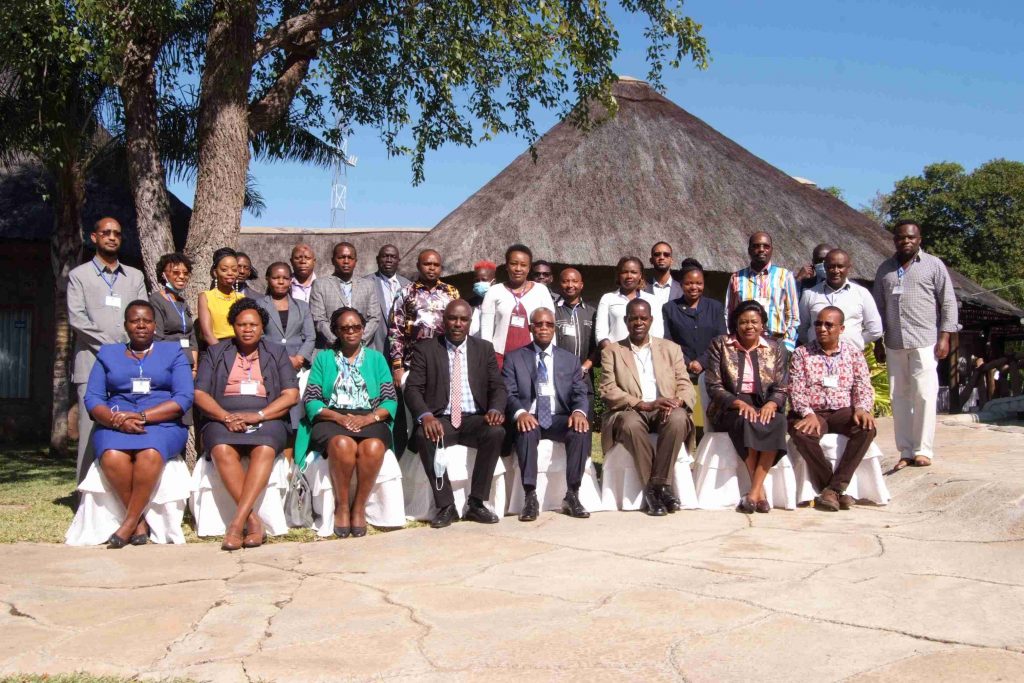
Kenya is set to become the second country in COMESA, after Zambia to undergo structural vulnerability and resilience assessment as part of capacity building to prevent occurrence of conflicts. In preparation, a Kenyan delegation comprising members of the National Cohesion and Integration Commission (NCIC) and the Parliamentary Committee on National Cohesion and Equal Opportunities is attending a five-day training on the COMESA/African Union Structural Vulnerability Assessment and Resilience Assessment framework (SVRA).
The training opened on Monday, May 17, 2021 in Livingstone, Zambia, and is organized by COMESA in collaboration with the African Union and the Save the Children International. Its key objective is to train the two institutions, which are key in building cohesion and integration in Kenya, to develop a roadmap of the implementation of the SVRA process in the country.
COMESA has been implementing an early warning system (COMWARN) that provides forecasts on the structural drivers that could lead countries towards higher or lower levels of peace and prosperity. The model, which is anchored on the COMESA Peace and Prosperity Index has the overall goal of supporting member states to build resilience.
Speaking at the opening of the training, the Chair of the NCIC Rev Dr Samuel Kobia, said violence has become a common means of expressing opposition and dissent on most issues especially in African where there are young democracies.
“One of the identified roadblocks to a violence-free election in Kenya is inadequate or total lack of immediate interventions to curb escalation of violence,” Dr Kobia said. “In our election’s roadmap, we want to strategically disrupt violence by establishing a robust election early warning and rapid response system that will tap into the existing sub-systems across the country.”
As Kenya prepares for election next year, he said, it must address all potential sources of violence. Among the initiatives the Commission is working on includes developing a social cohesion index using a set of quantitative indicators covering critical components such as equity and trust.
During the training, Zambia, which is the first country in COMESA to volunteer for the structural vulnerability and resilience assessment process of the AU and only the third in the Continent will share its experience with Kenya delegates. Zambia will also hold elections in August this year.
COMESA Secretary General, Ms Chileshe Kapwepwe expressed hope that Zambia’s lessons will provide enough incentives to hasten Kenya to incorporate the use SVAs into the national early warning system. She assured Kenya, that COMESA and the AU will jointly mobilize the necessary resources to ensure its success.
“Apart from equipping your situation room, which shall be done by the AU, we shall also support the meetings and workshops as well as the recruitment of a consultant who will be identified by Kenya once the country agrees to volunteer to the process,” she said. “We shall also readily provide you whatever technical support that you shall need to ensure that the process is successful.”
Save the Children International Representative Mr. Anthony Njoroge, observed that the most burdensome brunt of armed violence and warfare is borne by children, hence his organization’s resolve to work with regional economic communities’ efforts towards this objective.
“Our commitment is to jointly support the development of child-friendly indicators to strengthen the existing Early Warning System to reflect the actual situation on the ground and provide accurate data for the better protection of children and youth in situations of conflict, for ultimately, a peaceful, secure and stable Africa” he said.
Head of delegation of the Kenya Parliamentary Committee Hon. Prof Zadok Ogutu observed that politicians contribute to political conflicts and the involvement of the legislators in peace building initiatives was appropriate.
The training ends on Friday.

